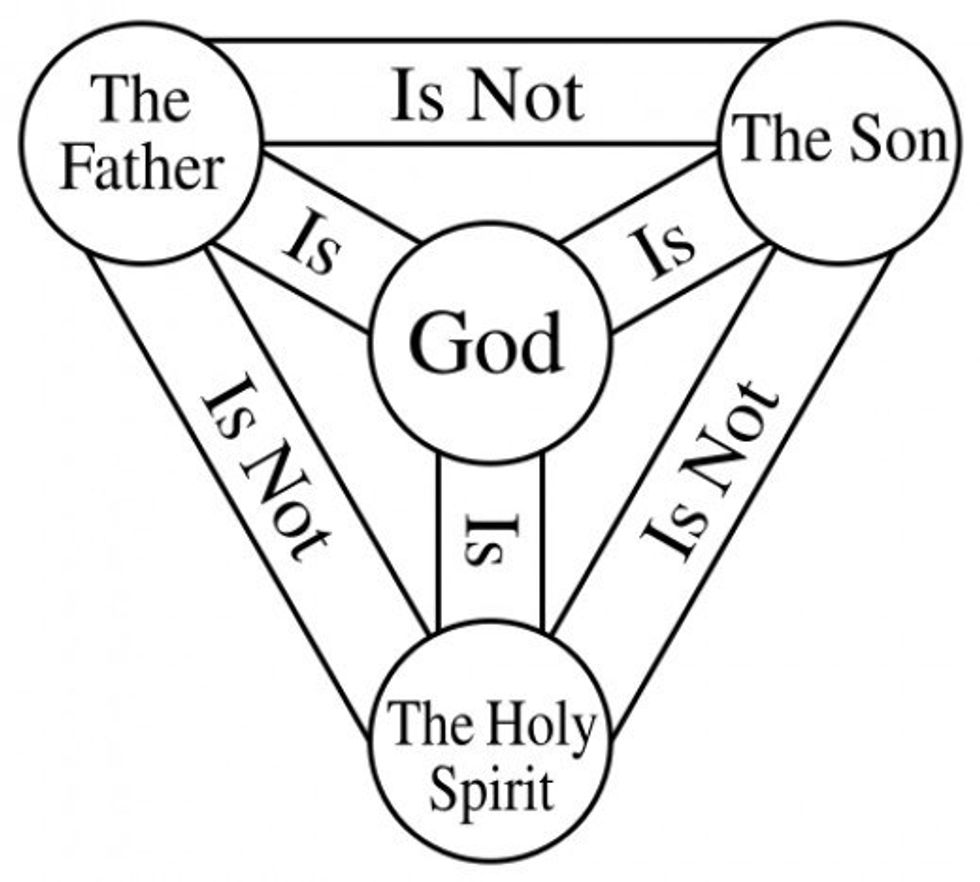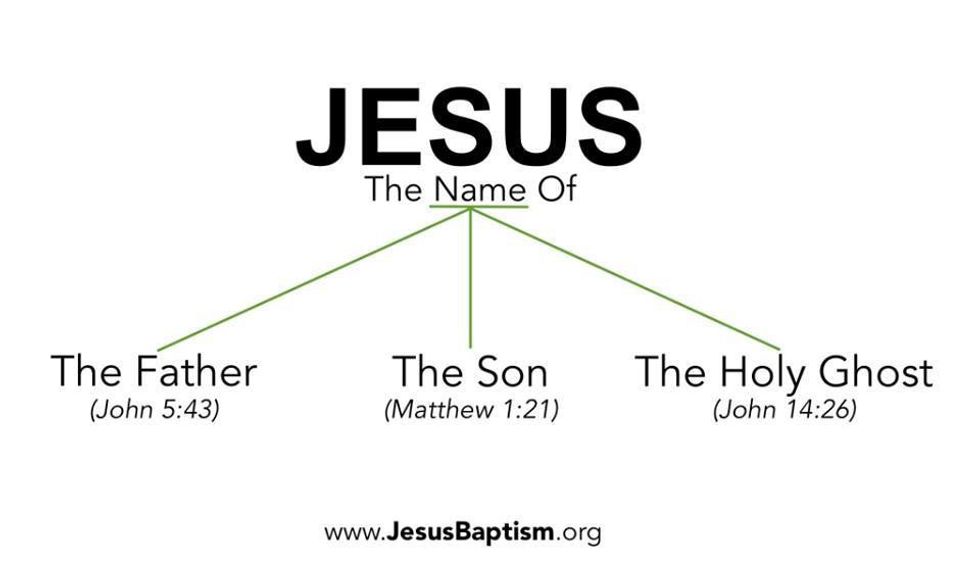This is not an exhaustive examination of the Trinity nor will this explain all the intricacies of the Trinity. This is a brief guide to how the Triune God of the Bible has revealed Himself.
Let’s start by defining the Trinity.
Recommended for you
Within the being of God, there exists three coequal, coeternal persons, the Father, Son, and Holy Spirit, in eternal relationship with one another.
Let’s break this definition down so that there’s as little confusion as possible.
Within the being, or substance of God, that is, what makes God divine. It cannot be contained and there is no limit to it. It is immaterial, but it is beyond any created thing, which includes immaterial created things, such as Heaven and Hell. If I may be so bold, this being transcends reality itself since God is the creator of reality, though God is very, very real. On a side note, as is His judgement of sin.
Now, within this infinite substance, there exists three persons. They are co equal, that is, none of them are inferior to another. They voluntarily take on different roles and submit to each other, but we’ll get to that later.
If this is still difficult to wrap your mind around, think about a rock. A rock has being, but it does not have any personhood. A person as a being (human) and a singular personhood.
“So if God has three persons, does that mean He has dissociative identity disorder?”
Absolutely not. Dissociative Identity Disorder, or Multiple Personality Disorder, is a result of trauma. It means there is a disconnect or deficiency, in the way a person controls themselves or identifies themselves.
God has perfect control over Himself and never changes (Numbers 23:19), therefore He cannot be altered by trauma or other infirmities.
In addition, each person of the Trinity is unique in their own right, whereas the different personalities of someone suffering from typically embody one trait, such as a personality who is mostly professional, a personality who is mostly angry, a personality who is mostly promiscuous, and so on.
They are coeternal, that is, they have always existed. One did not create the other two, nor did the other two create one, nor did one come into existence, followed by another, then another. The idea that the different persons of God came into existence by an external means to themselves later than others is problematic because time is a creation of God (Genesis 1:1). Therefore, God is outside of time.
“Then where did God come from?”
Nowhere. God is the uncaused first cause which caused the creation of the universe.
Lets get back to the Trinity.
This final part is especially important. The persons of the Trinity are in eternal community with each other. This relationship is integral to Salvation, but once again, we’ll get to that later.
Here’s a helpful visual, typically referred to as the Trinity Shield.
Now, quickly, let’s get to what I promised we’d get to and talk a little bit about Christian Salvation. In short, God alone is what saves us (Ephesians 2:8). Not a profession, not rituals, not good deeds. If you want a fuller explanation, see here and here. Why does God save us?
“Because He loved us so much.”
That’s not wrong, but it’s pretty simplistic. If God’s strong emotional attachment alone is what compels Salvation, why doesn’t He just grant universal Salvation to all since He loves everyone?
We know not everyone is saved (1 John 2:19, John 10:26), so there’s more.
From a Biblical perspective, let’s examine what happening behind the scenes, if you will, of Salvation.
Those who were saved, are saved, and will be saved are gifts from the Father to the Son (John 6:36-40, John 17:1-2), whom the Son redeems by His sacrifice (Ephesians 1:7, Luke 22:29; Hebrews 10:5–7), who then the Holy Spirit applies Salvation to (Luke 1:35).
Keep in mind, each person is doing something different. Not the other person's can’t do what the others can, but these are the roles they choose to take on (Philippians 2:5, Luke 4:18).
Now remember, we’re still talking about one God. Not three Gods who are so close they might as well be one, but one, singular being.
Now, finally, let’s address some modalist memes. In short, modalism is the belief that God exists as one being and one person, and the Father, Son, and Holy Spirit are roles God takes on depending on the context.
Let’s start with this wheel.
Jesus is God, God is a spirit, and there is only one God. I submit to you that this wheel can be entirely correct in it’s representation of God and still pose no threat to the doctrine of the Trinity. Why?
Because keep in mind the distinction between persons and being.
Jesus is God. Yes, the person of Jesus, the Son, is God.
God is Spirit. Yes. The being of God is spirit, and that spirit is triune.
There is but one God. Yes. That God happens to be triune.
This chart, however, is much more specific in it’s definition of modalism.
Let’s address these verses quickly below. Since this is a Pentecostal meme, I’ll use the KJV, although I prefer the ESV. More manuscripts have been discovered since the KJV was published, thus the ESV is much closer read to what the original manuscripts said, but that’s another subject for another time.
“I am come in my Father's name, and ye receive me not: if another shall come in his own name, him ye will receive.” John 5:43 (KJV)
Jesus is not saying that he and the Father have the same name. He’s saying He has come with the Father’s authority; as an ambassador. David uses almost the same expression in 1 Samuel 17:45. David isn’t saying that “David” is the Father’s name.
“But the Comforter, which is the Holy Ghost, whom the Father will send in my name, he shall teach you all things, and bring all things to your remembrance, whatsoever I have said unto you.” John 14:26 (KJV)
Same usage here. Jesus is saying that the Holy Spirit will come in Jesus’s authority. Jesus even names the Holy Spirit (Holy Ghost) before using the expression “in my name.” On a side note, notice the distinction Jesus makes between Himself and the Father. He does not say, “whom I will send in my name,” He credits the sending of the Holy Spirit to the Father.
If you want to learn more about the Trinity, I suggest Delighting in the Trinity. If you want more, you can watch or listen to this.





















